Quad leaders vow free and open Indo-Pacific, action on climate
4 min readTOKYO: The four leaders of the “Quad” group of countries vowed on Tuesday to work together for a free and open Indo-Pacific region and to fight climate change, as they met for talks aimed at standing up to an increasingly assertive China.
U.S. President Joe Biden, at the opening of talks with the leaders of three “close democratic partners”, including Indian Prime Minister Narendra Modi, condemned Russia’s invasion of Ukraine as not just a European issue but a global one.
Japanese Prime Minister Fumio Kishida, echoed that, saying the same thing should not be allowed to happen in Asia.
Taiwan was not an official item on the Quad agenda, a U.S. official said, but it was expected to be an important topic a day after Biden broke with convention and volunteered U.S. military support for the self-governed island claimed by China.
“This is more than just a European issue, it’s a global issue,” Biden said of the Ukraine, as the talks, which include Australia’s new prime minister, Anthony Albanese, got underway.
Biden stressed that the United States would stand with its allies to push for a free and open Indo-Pacific region.
“Russia’s assault of Ukraine only heightens the importance of those goals of fundamental principles of international order, territorial integrity and sovereignty. International law, human rights must always be defended regardless of where they’re violated in the world,” he said.
Kishida said the Russian invasion “shakes the foundation of international order” and was a direct challenge to the principles of the United Nations.
“We should not allow similar things to happen in the Indo-Pacific region,” he said.
Modi made no comment on Ukraine or Russia in his remarks. India has frustrated the United States with what it regards as a lack of support for U.S.-led sanctions and condemnation of Russia’s invasion of Ukraine.
Though India has developed close U.S. ties in recent years and is a vital part of the Quad grouping aimed at pushing back against China, it also has a long-standing relationship with Russia, which remains a major supplier of its defense equipment and oil supplies.
India abstained in U.N. Security Council votes on Russia’s invasion, though it did raise concerns about some killings of Ukrainian civilians.
‘AMBITIOUS ACTION’
Australia’s Albanese, making his international debut as prime minister, told the group that his priorities were aligned with theirs and he pledged to invest more in the battle against climate change in a region in which South Pacific island nations face some of the most direct risks from rising seas.
“The region is looking to us to work with them and to lead by example,” he said.
“That’s why my government will take ambitious action on climate change and increase our support to partners in the region as they work to address it, including with new finance.”
On India’s stand on Ukraine, a U.S. official said Biden would seek out commonalities, emphasizing the importance of a face-to-face meeting.
“It’s true with all the members of quad there are some differences, the question is how they’re addressed and how they’re managed,” the official said in a briefing to reporters before the talks.
One key question for the United States going into the Quad meeting was how to wean India off Russian-supplied military equipment and whether to provide defense aid and other support to India to accelerate that transition.
The United States is considering “investment support” of $4 billion for India on top of billions of dollars extended earlier, New Delhi said on Monday after the two sides signed an agreement on COVID-19 vaccine manufacturing, healthcare, renewable energy, financial inclusion and infrastructure. **
Australia’s Albanese, making his international debut as prime minister, told the group that his priorities were aligned with theirs and he pledged to invest more in the battle against climate change in a region in which South Pacific island nations face some of the most direct risks from rising seas.
“The region is looking to us to work with them and to lead by example,” he said.
“That’s why my government will take ambitious action on climate change and increase our support to partners in the region as they work to address it, including with new finance.”
On India’s stand on Ukraine, a U.S. official said Biden would seek out commonalities, emphasizing the importance of a face-to-face meeting.
“It’s true with all the members of quad there are some differences, the question is how they’re addressed and how they’re managed,” the official said in a briefing to reporters before the talks.
One key question for the United States going into the Quad meeting was how to wean India off Russian-supplied military equipment and whether to provide defense aid and other support to India to accelerate that transition.
The United States is considering “investment support” of $4 billion for India on top of billions of dollars extended earlier, New Delhi said on Monday after the two sides signed an agreement on COVID-19 vaccine manufacturing, healthcare, renewable energy, financial inclusion and infrastructure.
For the latest news, follow us on Twitter @Aaj_Urdu. We are also on Facebook, Instagram and YouTube.
















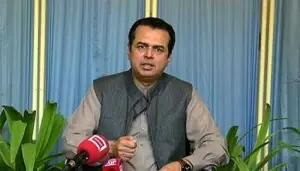


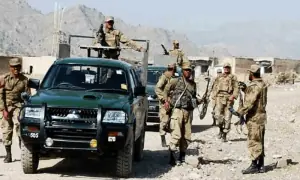
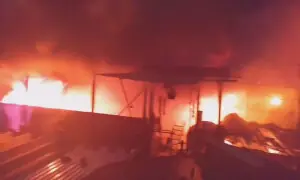
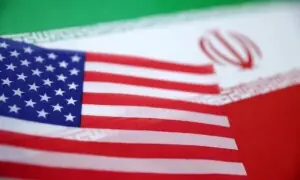
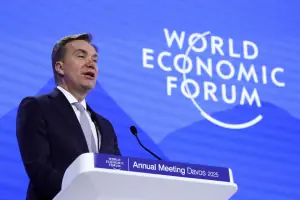
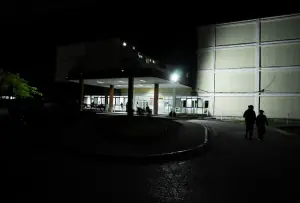
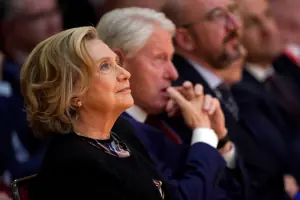
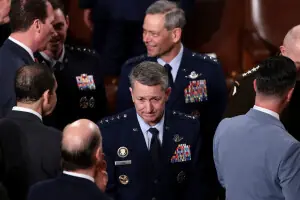

Comments are closed on this story.